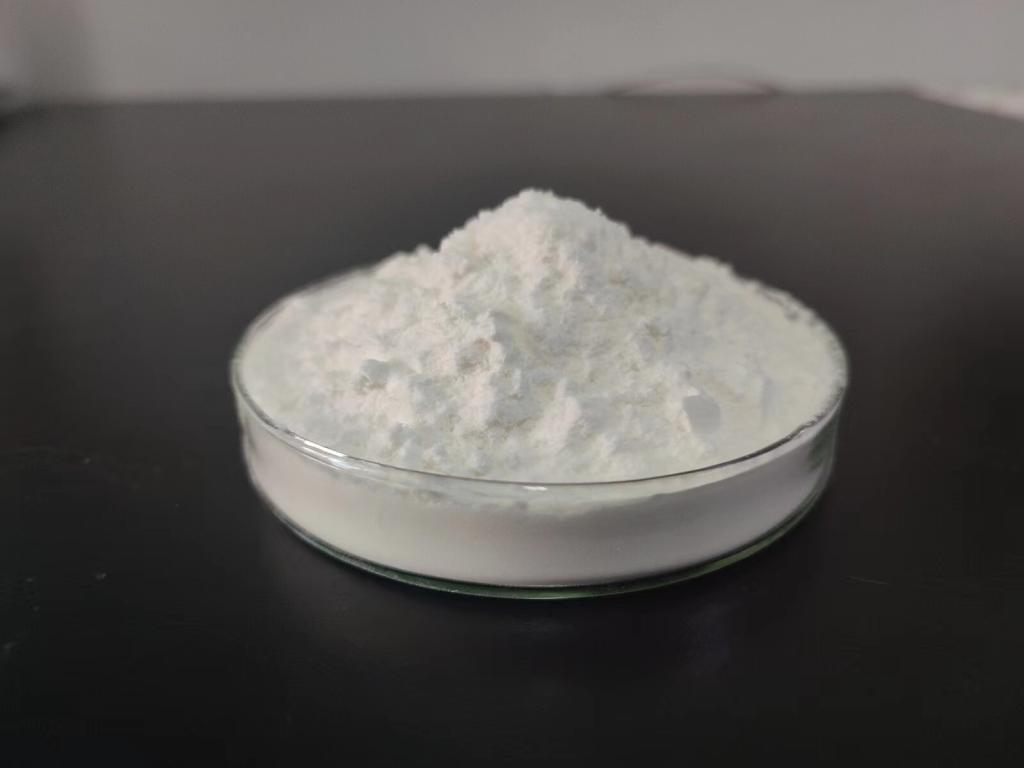Tel:+8618231198596

News
 CONTACT
CONTACT
 CONTACT
CONTACT
- Linkman:Linda Yao
- Tel: +8618231198596
- Email:linda.yao@dcpharma.cn
- Linkman:CHARLES.WANG
- Department:Overseas
- Tel: 0086 0311-85537378 0086 0311-85539701
News
Current Position:
Home >
News
>ε-Polylysine hydrochloride inhibits the growth of bacteria and fungi.
ε-Polylysine hydrochloride inhibits the growth of bacteria and fungi.
TIME:2024-03-21
Understanding ε-Polylysine Hydrochloride:
ε-Polylysine hydrochloride is a cationic polypeptide composed of multiple lysine residues linked by peptide bonds. It is naturally produced by certain bacteria, including Streptomyces albulus and Streptomyces noursei, through fermentation processes. This peptide exhibits potent antimicrobial properties, targeting a wide range of bacteria and fungi through its mechanisms of action.
Mechanisms of Action Against Bacteria:
ε-Polylysine hydrochloride exerts its antimicrobial effects primarily by disrupting the integrity of bacterial cell membranes. As a cationic peptide, it interacts with the negatively charged components of bacterial cell membranes, leading to membrane destabilization and permeabilization. This disrupts essential cellular functions, such as nutrient uptake and energy production, ultimately resulting in cell death.
Furthermore, ε-Polylysine hydrochloride's broad-spectrum antimicrobial activity allows it to target various bacterial species, including both Gram-positive and Gram-negative bacteria. This versatility makes it an effective weapon against a wide range of pathogens encountered in different environments.
Inhibition of Fungal Growth:
In addition to its antibacterial properties, ε-Polylysine hydrochloride also exhibits antifungal activity against a variety of fungal species. Similar to its effects on bacteria, ε-Polylysine hydrochloride disrupts fungal cell membranes, leading to cell lysis and inhibition of fungal growth.
Fungi play a significant role in food spoilage and deterioration, making ε-Polylysine hydrochloride a valuable tool in preserving food freshness and extending shelf life. By inhibiting the growth of spoilage fungi, ε-Polylysine hydrochloride helps maintain the quality and safety of food products, reducing food waste and promoting sustainability.
Applications in Food Preservation:
The antimicrobial properties of ε-Polylysine hydrochloride make it an ideal preservative for food and beverage products. It is commonly used in the food industry to inhibit the growth of spoilage organisms and foodborne pathogens, thereby extending the shelf life of perishable products.
ε-Polylysine hydrochloride can be incorporated into food packaging materials, applied directly to food surfaces, or added to food formulations during processing. Its stability under various pH and temperature conditions makes it suitable for a wide range of food products, including dairy, meat, seafood, bakery, and ready-to-eat meals.
Implications for Healthcare:
In the healthcare industry, ε-Polylysine hydrochloride's antimicrobial properties find applications in wound care products, medical devices, and personal hygiene items. Its ability to inhibit the growth of bacteria and fungi helps prevent infections and promote wound healing in various medical settings.
ε-Polylysine hydrochloride can be incorporated into wound dressings, surgical sutures, and catheters to reduce the risk of bacterial colonization and nosocomial infections. In oral care products such as toothpaste and mouthwash, it helps inhibit the growth of oral bacteria responsible for dental caries and periodontal diseases.
Environmental Sustainability:
In addition to its efficacy in controlling microbial growth, ε-Polylysine hydrochloride offers environmental benefits that contribute to sustainability efforts. Being derived from natural sources, ε-Polylysine hydrochloride has a minimal ecological footprint compared to synthetic antimicrobial agents derived from petrochemicals.
Furthermore, the use of ε-Polylysine hydrochloride in food preservation helps minimize food waste by extending the shelf life of perishable products. This contributes to resource conservation and reduces the environmental impact of food production and distribution.
Conclusion:
ε-Polylysine hydrochloride's ability to inhibit the growth of bacteria and fungi makes it a versatile and effective antimicrobial agent with wide-ranging applications in food preservation, healthcare, and environmental sustainability. Its mechanisms of action, broad-spectrum activity, and natural origin position it as a valuable tool for promoting food safety, improving healthcare outcomes, and advancing towards a more sustainable future. By harnessing the power of ε-Polylysine hydrochloride, we can address the challenges posed by microbial contamination and contribute to a healthier and more resilient society.
- Tel:+8618231198596
- Whatsapp:18231198596
- Chat With Skype







